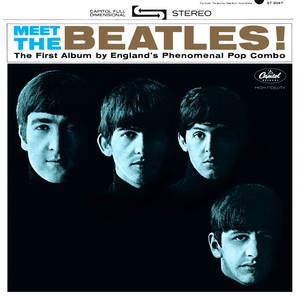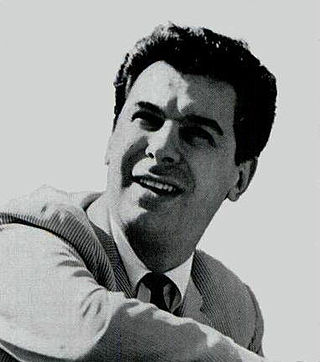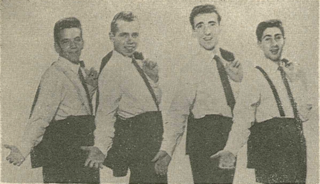This article needs additional citations for verification .(August 2014) |
Swan Records was a mid-20th century United States-based record label, founded in 1957 and based in Philadelphia, Pennsylvania. It had a subsidiary label called Lawn Records.
This article needs additional citations for verification .(August 2014) |
Swan Records was a mid-20th century United States-based record label, founded in 1957 and based in Philadelphia, Pennsylvania. It had a subsidiary label called Lawn Records.
Swan Records had enjoyed chart success with several U.S. artists but came into the spotlight after EMI, a prestigious British music company headquartered in London, leased the Beatles' recording of "She Loves You" backed with "I'll Get You" and, as catalogue number Swan 4152, it became an American number 1 hit on March 21, 1964. This followed the decision made by EMI's American subsidiary Capitol Records not to exercise its option to release the Beatles singles in the U.S.
Swan also assumed the rights to the German version of "She Loves You", "Sie Liebt Dich" which peaked at #97 in 1964.
The success of the "She Loves You" single kept Swan going while other small record labels were snowed under by the British Invasion, but it finally closed filing bankruptcy in 1967.
The company was initially built on the strength of staff producer/writers Bob Crewe and Frank Slay.
Outside of "She Loves You", Swan's most remembered hit was "Palisades Park" in 1962, written by Chuck Barris, and performed by the most successful artist on the label, Freddy Cannon, who also scored hits with "Tallahassee Lassie" and "Way Down Yonder in New Orleans" before moving to Warner Brothers in 1964. Another hit for Swan was a release of The Rockin' Rebels' lone hit, the instrumental "Wild Weekend" was reissued in 1962 after Buffalo WKBW radio d.j. Tommy Shannon, partner in ShanTodd records, issued his night show theme of Wild Weekend. the group also released Rockin Cricketts as a follow up. Syracuse disc jockey Jimmy O’Brien used it as his theme on WNDR in Syracuse New York,attracting the attention of Philadelphia label Swan . The re-release on Swan became a national hit. Originally released on the Masters Releasing label Mar-Lee in 1960. Link Wray, best remembered for his classic 1958 instrumental "Rumble", had a modest hit at Swan with "Jack The Ripper".
Swan was co-owned by Bernie Binnick and Tony Mammarella, with Dick Clark reported to having a financial investment in it. When the payola scandals of the early 1960s broke, Clark divested himself of all of his outside interests to avoid conflict of interest. The label was distributed by fellow Philadelphian record company Cameo-Parkway Records, which at the time was the hottest label for teenage dance crazes ("The Twist", "Limbo Rock", "(Do) The Bird", "Wah-Watusi", "Mashed Potato Time", "Gravy (For My Mashed Potatoes)", "Hully Gully Baby", "Bristol Stomp", "(Do the) New Continental").
One of the first hits for the Swan label was "Click Clack" by Dickie Doo and the Don'ts, a studio recording produced by Gerry Granahan under the pseudonym that was actually the nickname Dick Clark called his infant son, Dick Clark, Jr. It reached the top 30 on the Billboard charts in February 1958. But another release by Billy & Lillie had already done much better: "La Dee Dah" reached #9 in January 1958, becoming Swan Records' first top-10 hit. [1]
In 1958, Mary Swan recorded "My Heart Belongs to Only You" #S4016B, and in 1959, she had a moderate hit with "Prisoner of Love", Swan #4028.
The Three Degrees had a moderate hit with a cover version of the Five Keys' "Close Your Eyes", but scored better on Roulette with their remake of the Chantel's "Maybe" and "When Will I See You Again" on Kenny Gamble and Leon Huff's Philadelphia International Records.
In 1973 Masters Releasing, Inc. (Corsican, Mar-Lee, Thunderbird, Sahara record labels) purchased from the bankruptcy Trustee all the sound recording rights of Swan including the master tapes. Masters Releasing was owned at the time by record executives Steve Brodie and Leonard "Lenny" Silver, who later formed Amherst Records. In addition, Freddy Cannon currently has complete control and ownership of his Swan recordings from Masters Releasing, as well as those released by Warner Bros. Records. In the 80's Freddy Cannon release a single on Amherst Records.
The Swan label bears the message "Don't drop out" on many releases to encourage kids to stay in school.
In 2007, Bruce Spizer released the book The Beatles Swan Song: 'She Loves You' & Other Records. [2] It contains a detailed account of the records of The Beatles on the Swan label, as well as United Artists, Decca, Atco, MGM and Polydor, plus a section about the Capitol releases from the 70s and 80s.

Doo-wop is a subgenre of rhythm and blues music that originated in African-American communities during the 1940s, mainly in the large cities of the United States, including New York, Philadelphia, Pittsburgh, Chicago, Baltimore, Newark, Detroit, Washington, D.C., and Los Angeles. It features vocal group harmony that carries an engaging melodic line to a simple beat with little or no instrumentation. Lyrics are simple, usually about love, sung by a lead vocal over background vocals, and often featuring, in the bridge, a melodramatically heartfelt recitative addressed to the beloved. Harmonic singing of nonsense syllables is a common characteristic of these songs. Gaining popularity in the 1950s, doo-wop was "artistically and commercially viable" until the early 1960s and continued to influence performers in other genres.

Vee-Jay Records is an American record label founded in the 1950s, located in Chicago and specializing in blues, jazz, rhythm and blues and rock and roll.

"She Loves You" is a song by the English rock band the Beatles, written by John Lennon and Paul McCartney and released as a single in the United Kingdom on 23 August 1963. The single set and surpassed several sales records in the United Kingdom charts, and set a record in the United States as one of the five Beatles songs that held the top five positions in the charts simultaneously, on 4 April 1964. It remains the band's best-selling single in the UK and was the top-selling single of the 1960s there by any artist.

"From Me to You" is a song by the English rock band the Beatles that was released in April 1963 as their third single. It was written by John Lennon and Paul McCartney. The song was the Beatles' first number 1 hit on what became the official UK singles chart but the second, after "Please Please Me", on most of the other singles charts published in the UK at the time. "From Me to You" failed to make an impact in the United States at the time of its initial release. Instead, a 1963 cover version released by Del Shannon resulted in the song's becoming the first Lennon–McCartney track to enter the US pop charts. The Beatles' original was re-released in the US in January 1964 as the B-side to "Please Please Me", and reached number 41.

Meet the Beatles! is a studio album by the English rock band the Beatles, released as their second album in the United States. It was the group's first American album to be issued by Capitol Records, on 20 January 1964 in both mono and stereo formats. It topped the popular album chart on 15 February 1964 and remained at number one for eleven weeks before being replaced by The Beatles' Second Album. The cover featured Robert Freeman's iconic portrait of the Beatles used in the United Kingdom for With the Beatles, with a blue tint added to the original stark black-and-white photograph.

Frederick Anthony Picariello, Jr., better known by his stage name Freddy Cannon, is an American rock and roll singer. His biggest international hits included "Tallahassee Lassie", "Way Down Yonder in New Orleans", and "Palisades Park".

Introducing... The Beatles is the first studio album released by the English rock band the Beatles in the United States. Originally scheduled for a July 1963 release, the LP came out on 10 January 1964, on Vee-Jay Records, ten days before Capitol's Meet the Beatles!. The latter album, however, entered the U.S. album chart one week before the former. Consequently, when Meet The Beatles! peaked at No. 1 for eleven consecutive weeks, Introducing...The Beatles stalled at No. 2 where it remained for nine consecutive weeks. It was the subject of much legal wrangling, but ultimately, Vee-Jay was permitted to sell the album until late 1964, by which time it had sold more than 1.3 million copies. On 24 July 2014 the album was certified gold and platinum by the RIAA.

Danny & the Juniors was an American doo-wop and rock and roll vocal group formed in Philadelphia, Pennsylvania. Originally consisting of Danny Rapp, Dave White, Frank Maffei and Joe Terranova, the group was formed in 1955. They are best known for their 1957 no. 1 hit "At the Hop" and their 1958 follow-up hit "Rock and Roll Is Here to Stay".

Charles Anthony Graci, known professionally as Charlie Gracie, was an American rock and roll and rhythm and blues singer and guitarist. His biggest hits were "Butterfly" and "Fabulous", both in 1957.

"Please Please Me" is a song released by the English rock band the Beatles. It was their second single in the United Kingdom, and their first in the United States. It is also the title track of their first LP, which was recorded to capitalise on the success of the single. It is a John Lennon composition, although its ultimate form was significantly influenced by producer George Martin.
Robert Stanley Crewe was an American songwriter, dancer, singer, manager, and record producer. Crewe co-wrote and produced a string of Top 10 singles with Bob Gaudio for the Four Seasons.
Gerald Granahan was an American singer, songwriter, and record producer, best known for his work in the 1950s and 1960s.
Billy & Lillie were an American pop vocal duo, composed of Billy Ford and Lillie Bryant.
Anthony (Tony) Mammarella was the first producer and second host of American Bandstand.
The Beatles experienced huge popularity on the British record charts in early 1963, but record companies in the United States did not immediately follow up with releases of their own, and the Beatles' commercial success in the US continued to be hampered by other obstacles, including issues with royalties and public derision toward the "Beatle haircut".
David "Bruce" Spizer is a tax attorney in New Orleans, Louisiana, who is also recognized as an expert on the Beatles. He has published thirteen books, and is frequently quoted as an authority on the history of the band and its recordings.
Frank Conley Slay Jr. was an American songwriter, A&R director, record producer, and record label owner. He wrote with Bob Crewe in the late 1950s and early 1960s, the partnership's most successful songs including "Silhouettes", a hit for several artists including The Rays and Herman's Hermits, "Daddy Cool", and "Tallahassee Lassie". As a producer, his biggest hit was "Incense and Peppermints" by the Strawberry Alarm Clock.
Little Jimmy Rivers & the Tops were an American doo-wop group from Harlem, New York, best remembered for their 1958 recording "Puppy Love" written by Ronnie Mack. The song became a local hit in Philadelphia in 1961. Sylvia Peterson, later of The Chiffons, sang with Little Jimmy & the Tops, sharing lead vocals with Jimmy on "Say You Love Me," the B-side of "Puppy Love."
"Leave Me Alone (Let Me Cry)" is a song released in 1958 by Dicky Doo & the Don'ts, a recording alias of Gerry Granahan. The song's melody is based on the Battle Hymn of the Republic. The song spent nine weeks on the Billboard Hot 100, reaching No. 44, while reaching No. 47 on the Cash Box Top 100, and No. 29 on Canada's CHUM Hit Parade.
Steve Brodie was an American record label owner and founder who was very active during the 1960s and 1970s. He owned or co-owned Thunderbird Records, Sahara Records, Forever Music and various others. He also produced recordings for artists.